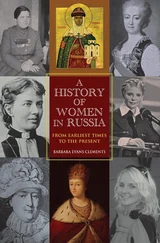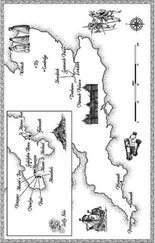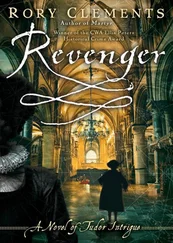Rory Clements - Martyr
Здесь есть возможность читать онлайн «Rory Clements - Martyr» весь текст электронной книги совершенно бесплатно (целиком полную версию без сокращений). В некоторых случаях можно слушать аудио, скачать через торрент в формате fb2 и присутствует краткое содержание. Жанр: Исторический детектив, на английском языке. Описание произведения, (предисловие) а так же отзывы посетителей доступны на портале библиотеки ЛибКат.
- Название:Martyr
- Автор:
- Жанр:
- Год:неизвестен
- ISBN:нет данных
- Рейтинг книги:3 / 5. Голосов: 1
-
Избранное:Добавить в избранное
- Отзывы:
-
Ваша оценка:
- 60
- 1
- 2
- 3
- 4
- 5
Martyr: краткое содержание, описание и аннотация
Предлагаем к чтению аннотацию, описание, краткое содержание или предисловие (зависит от того, что написал сам автор книги «Martyr»). Если вы не нашли необходимую информацию о книге — напишите в комментариях, мы постараемся отыскать её.
Martyr — читать онлайн бесплатно полную книгу (весь текст) целиком
Ниже представлен текст книги, разбитый по страницам. Система сохранения места последней прочитанной страницы, позволяет с удобством читать онлайн бесплатно книгу «Martyr», без необходимости каждый раз заново искать на чём Вы остановились. Поставьте закладку, и сможете в любой момент перейти на страницу, на которой закончили чтение.
Интервал:
Закладка:
Shakespeare shook his head dourly. That same virgin was clearly the Queen. The curiously phrased tract seemed to suggest that she and Leicester, her favorite courtier, had had a child together. And that the child had been suckled by the notorious-almost certainly nonexistent-sorceress known as Mother Davis. It was a preposterous accusation, but certainly not the first time that such a publication had suggested the Queen had secretly given birth to Leicester’s baby. The problem was, the more such allegations appeared, the more they came to be believed by the gullible among Elizabeth’s subjects. That was why it was necessary to stamp down so hard on these libels.
This was turning out to be a very bad day indeed. Shakespeare read on. There was more of the usual diatribe against Leicester, with additional accusations against Walsingham and Archbishop Whitgift. Finally, it came to the Scots Queen, Mary. The threat in the paper was clear: should sentence of death be carried out on her, then the bastard usurper-Elizabeth herself-would die, too. Shakespeare’s jaws tightened.
Outside, Boltfoot had a fire going. Under the watch of the constable, the band of beggars shuffled closer to get some of its heat. Shakespeare gazed at the bleak scene with a dispassionate eye: these vagabonds were a sorry lot, but he couldn’t take chances; they must be held until he had time to question them. One of them put his hand up and tried to say something. He was a tall, rangy man with bird’s-nest hair and a bright red jerkin that had seen better days.
You will get your chance to speak later, Shakespeare said curtly. He turned away to toss the libelous pamphlets on the fire. He kept one paper, the least damaged by water, and thrust it into his doublet, along with a corner of a damaged one which was printed with a good sample of typefaces.
Boltfoot, make sure all these burn so that not an ash survives. Ensure no one reads them. Then go through the house again, every nook and cranny. If you find more of these papers, burn them. If you find anything else, hold it for me. Then enlist the constable and bellman and any other respectable neighbors you might need. Get the body to the Searcher of the Dead at St. Paul’s and inform the coroner. Take the vagabonds under guard to Bridewell, where you will have them set to work. It will do them good. Leave sixpence for their food. Also, inquire who owns this house. We will meet in Seething Lane at dusk.
Boltfoot motioned toward the beggars, singling out the one who was tallest, in the frayed red jerkin. Mr. Shakespeare, that one says he would speak with you.
I know, Boltfoot, but he will have to wait. I must hasten to Barn Elms.
Shakespeare remounted and was about to spur his horse toward Bishop’s Gate, when he heard the clump of hooves on hard earth. He turned and saw four horsemen approaching. He stopped. They came on fast, halting in a fury of stamping hooves, rearing, twisting necks, and flying manes. Shakespeare recognized their leader instantly: Richard Topcliffe, the Queen’s Servant.
What is here, Mr. Shakespeare? Topcliffe drew his horse alongside, so he and Shakespeare were face to face.
A murder, Shakespeare said slowly and deliberately. He fixed his eyes on Topcliffe’s and held his gaze. It need not concern you.
Topcliffe’s brow clouded like an approaching storm. I decide what concerns me, Shakespeare. The Queen’s life and the security of her realm concern me, and anything pertaining to these matters. Answer me: who has been killed here?
You will find out in due course.
Topcliffe was silent a moment, as if considering his response, then he said slowly, Would you cross me, Shakespeare? When Topcliffe spoke, in his distinct Lincolnshire tone, it was more like the growl of a wildcat from the menagerie at the Tower than a human voice.
Shakespeare breathed deeply. He and Topcliffe had clashed over the recent Babington conspiracy to murder the Queen. Some of the accused had ended up in Topcliffe’s hands at the Tower. He had brought torture to bear and muddied the waters. Shakespeare, who had been deeply involved in breaking the plot, had wanted to interrogate the prisoners. He was convinced that more could have been elicited from the plotters by gentler means than torture, including the names of other conspirators; Topcliffe, who had done his grisly work with the full authority of the Queen, had simply broken their bodies on the rack. When Shakespeare protested, he and Topcliffe almost came to blows. Only the intercession of Walsingham had kept them apart. Now Shakespeare could smell Topcliffe’s brutish animosity. It was a stench beyond sweat. Shakespeare held his ground. Talk to the Principal Secretary. I report to him, not to you.
Topcliffe jumped from his horse. He was a man in his mid-fifties with the raw physical power of a fighting bandog. In his hand he carried a silver-tipped blackthorn stick, heavily weighted at the silver end like a cudgel. He strode two steps to Shakespeare’s horse and casually wrenched him from the saddle.
Shakespeare was dragged by his prized bear cloak like a sack of beets. He scrabbled against the hard ground as Topcliffe pulled him toward the house. Shakespeare gained a foothold and stumbled to his feet. Undeterred, Topcliffe reached out and took hold of the nape of Shakespeare’s neck and pulled him like a reluctant schoolboy, then stopped abruptly in his tracks.
Boltfoot had the slender octagonal muzzle of his ornate caliver full in Topcliffe’s face, primed and ready to fire.
Topcliffe weighed up the position for no more than two seconds, then laughed and dropped Shakespeare. He smacked the silver end of his blackthorn into the palm of his hand menacingly. I’ll have you, John Shakespeare. I’ll sup on your blood. And you, Boltfoot Cooper. He left them and swept into the house.
Shakespeare dusted down his suit of clothes. They were muddy and damaged and he was angry. He followed Topcliffe through the doorway. Boltfoot stayed outside, his caliver leveled at the remainder of Topcliffe’s band, all still mounted and looking very little concerned.
In the second-floor chamber, Topcliffe stared down at the corpse of Blanche Howard for a moment, then grasped her hair and lifted her head to get a closer look at her dead face.
Who is she?
You’ll find out when Mr. Secretary or the Council sees fit to tell you.
The Council! Topcliffe snorted with disdain and flung the near-severed head back on the stained mattress. He turned to Shakespeare and rested his broad hands on his hips. If we waited on the Council, we’d have a Spaniard for our sovereign.
I know what I must do, Topcliffe.
Do you? I believe you are a boy trying to do a man’s job, Shakespeare. And do you really think I don’t know who she is? She’s a Howard. Now, where are the papers?
Papers?
I am told there are papers here. Give them to me.
There were papers here, but not now. I have had them burned.
All of them?
Yes, all of them, Topcliffe. Shakespeare had to restrain himself from folding his arms tight around his chest where the paper was secreted.
If I find you lie to me, I’ll have your head, Shakespeare. I know about your father’s little secret. And are you any different? You say so-but so do many.
Shakespeare’s skin rose in bumps. You know nothing of my family, Topcliffe. But clearly he did, and the words worried him.
He had entered the service of Walsingham believing that the new religion, this Church of England, was the true religion; that the Roman way, with its sale of relics, its superstition, its cruel Inquisition and burnings of flesh, was the corruption. In his soul, he could only fight for this English version of Christianity if he believed in it utterly. And yet family loyalties tore at him, for his father still clung to the old religion in private, breaking the recusancy laws by not attending the parish church on Sundays. Such knowledge, in the hands of Topcliffe, was like a charge of gunpowder in the fingers of a child playing with flint and steel. It could go off at any moment and ruin his father. And it would do very little for his own prospects in the service of the Crown.
Читать дальшеИнтервал:
Закладка:
Похожие книги на «Martyr»
Представляем Вашему вниманию похожие книги на «Martyr» списком для выбора. Мы отобрали схожую по названию и смыслу литературу в надежде предоставить читателям больше вариантов отыскать новые, интересные, ещё непрочитанные произведения.
Обсуждение, отзывы о книге «Martyr» и просто собственные мнения читателей. Оставьте ваши комментарии, напишите, что Вы думаете о произведении, его смысле или главных героях. Укажите что конкретно понравилось, а что нет, и почему Вы так считаете.












